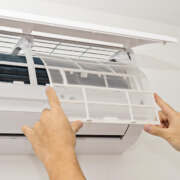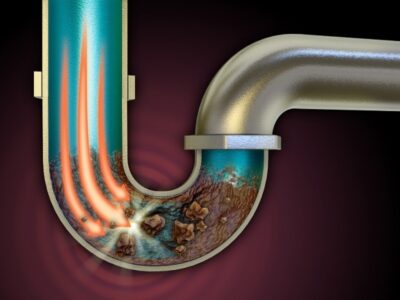If you have ever wondered whether it’s legal to drain your washing machine outside, you are not alone. It’s a question that many homeowners ask, and for a good reason. While this may seem like a convenient option, this action may have its legal and environmental consequences.
The quick answer is – draining washing machine directly outside is illegal in most states of America. A good alternative may be draining your gray water into a sink or a floor drain. If that’s not possible, you can use a large basin to store the dirty water temporarily.
Ideally, your washing machine should be connected to a dedicated drainpipe or standpipe, that’s connected to a home’s plumbing system. This ensures proper drainage and prevents potential environmental harm.
To be 100% sure, we would also recommend checking your local codes and regulations on this topic. To do so, contact your city or county’s building department or environmental health agency. Additionally, you can check your state or province’s environmental agency website for more information on regulations and best practices for washing machine water disposal.
Why should you care where you drain your washing machine?
Wastewater that is generated from various household activities such as laundry or cleaning dishes can have a significant environmental impact. Gray water that is drained improperly can contaminate nearby bodies of water, harming aquatic ecosystems as a result.
By disposing of the gray water properly, you help to protect the environment and maintain the safety and cleanliness of living space around you.
Is it legal to drain the washing machine outside?
Draining your washing machine outside is illegal in most states of America. Doing this can not only harm the environment but also cause legal consequences.
Most of the time, violations will result in fines or penalties pressed by local or state authorities. That being said, not complying with them may lead to more serious legal actions such as civil or criminal charges.
Responsible wastewater disposal is the only way to completely avoid any negative legal and environmental consequences.
What is the current state of gray water regulations?
| States where draining water outside is illegal | States where draining water outside is legal (with exceptions) |
|---|---|
| New York | Michigan |
| Tennessee | Florida |
| Arizona | Georgia |
| North Carolina | Texas |
| Arkansas | Alabama |
| Alabama | California |
| Oregon | New Mexico |
| Nevada | |
| Nebraska | |
| Utah | |
| Montana | |
| Wyoming | |
| Colorado | |
| Missouri |
The legality of greywater disposal varies widely across different states in the US, with some states regulating it similar to septic water and others allowing it only in specific cases, such as with a composting toilet.
While some states have strict guidelines and permit requirements for greywater systems, others allow small systems without permits.
Despite the lack of uniform codes across the country, the trend is towards better, more lenient codes for greywater systems.
To determine the specific regulations in your state or locality, it is best to consult with your local building department, environmental health department, water district, or environmental groups.
However, it’s worth noting that these sources may not always be up-to-date on the most recent code changes, so it’s important to stay informed on any updates or changes to greywater regulations in your area.
How to properly drain the washing machine?
Following legal requirements
The first step is to identify the legal requirements in your area by consulting the city or county’s building department or environmental health agency. When you know the regulations, it’s important to use the right drainage system.
Draining the gray water
Locate the washing machine’s drainage hose, which is typically found at the back of the washing machine near the bottom. Position the hose so it’s securely inserted into a drainpipe or standpipe. If there isn’t a nearby drainpipe or standpipe, you can also use a utility sink or drain.
Washing machine maintenance
Regular cleaning and maintenance of your washing machine’s drainage system is important to prevent clogs and other issues that can occur over time. If you would like to prolong the life of your washing machine and make it work more effectively, here are some tips to follow:
- Clean the lint filter. Both lint and debris can build up inside the filter of your washing machine, causing clogs and drainage issues. Regular cleaning should prevent this issue from happening. Alternatively, you can look for replacement parts online.
- Check the drainage hose. When you’re draining your washing machine, it’s important to give the drainage hose a once-over for any cracks or other damage that could cause leaks. If you do find any issues, it’s best to take care of them right away by either repairing the hose or replacing it entirely.
- Clean the drainage hose. Dirt and debris will build up over time in your drainage hose, causing massive clogs. Be sure to check for the right flow when you drain your washing machine. In case of any problems, remove the stuck debris with a pipe cleaner.
- Clean the washing machine drum. Drum can also lead to clogging your washing machine when you are not careful. Residue from detergents, fabric softeners, and other cleaning agents will likely cause a build up inside your washing machine’s drum. Clean it periodically with water and vinegar to remove the residue.
- Use the right detergent. Always be sure to use the right cleaning agents for your washing machine model. Look for any information on that topic in the user’s manual or on the official manufacturer’s website. Follow recommendations regarding the type and amount of detergent to use.
Those are only some of the tips you should follow when taking care of your washing machine. Be sure to read the user’s manual for a more comprehensive look into what your washing machine model requires. Additionally, we recommend visiting CleaninFan.com, a website dedicated to appliances and guides related to cleaning.
Conclusion
In conclusion, it is illegal in most states of America to drain your washing machine outside due to the potential harm it can cause to the environment. Violations of this law can result in fines or penalties, and failure to comply may even lead to legal actions.
To ensure compliance, it is essential to follow best practices for responsible wastewater disposal. Properly draining your gray water into a sink or a floor drain or using a large basin to store the dirty water temporarily are all viable options.
Be sure to consult your local regulations and stay informed on any updates or changes to greywater regulations in your area to ensure you’re doing your part to protect the environment.










Comments